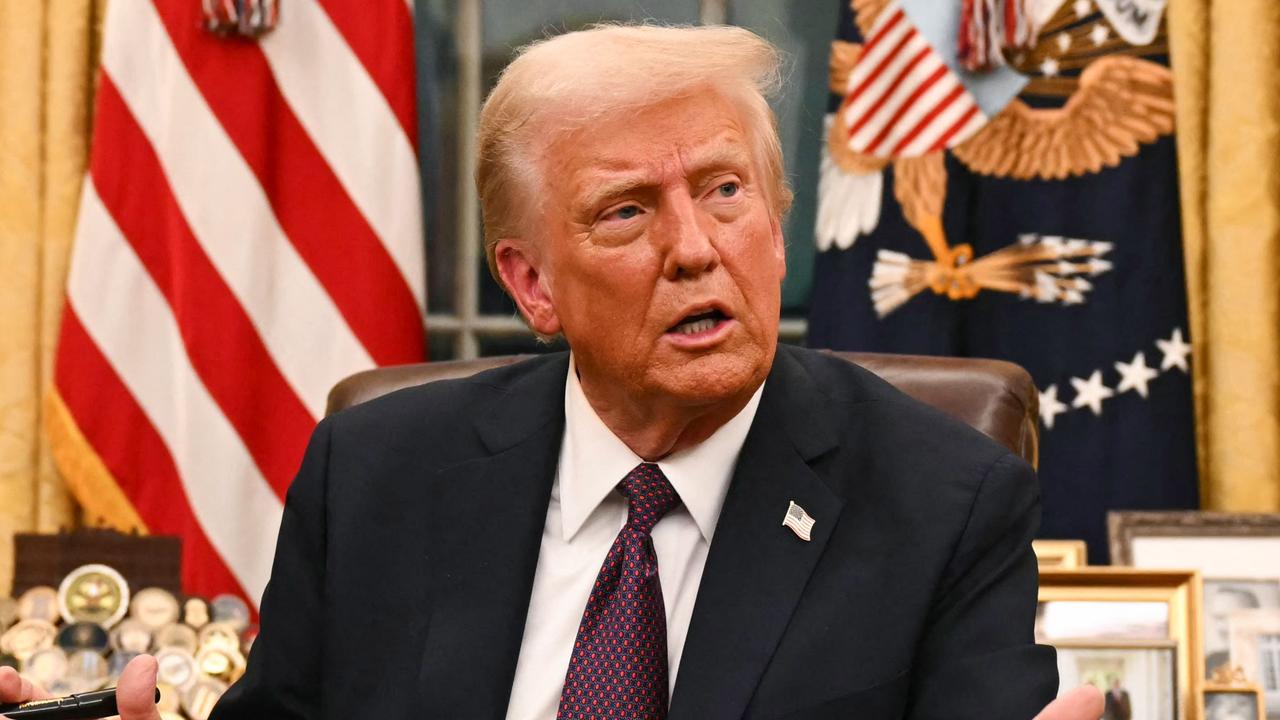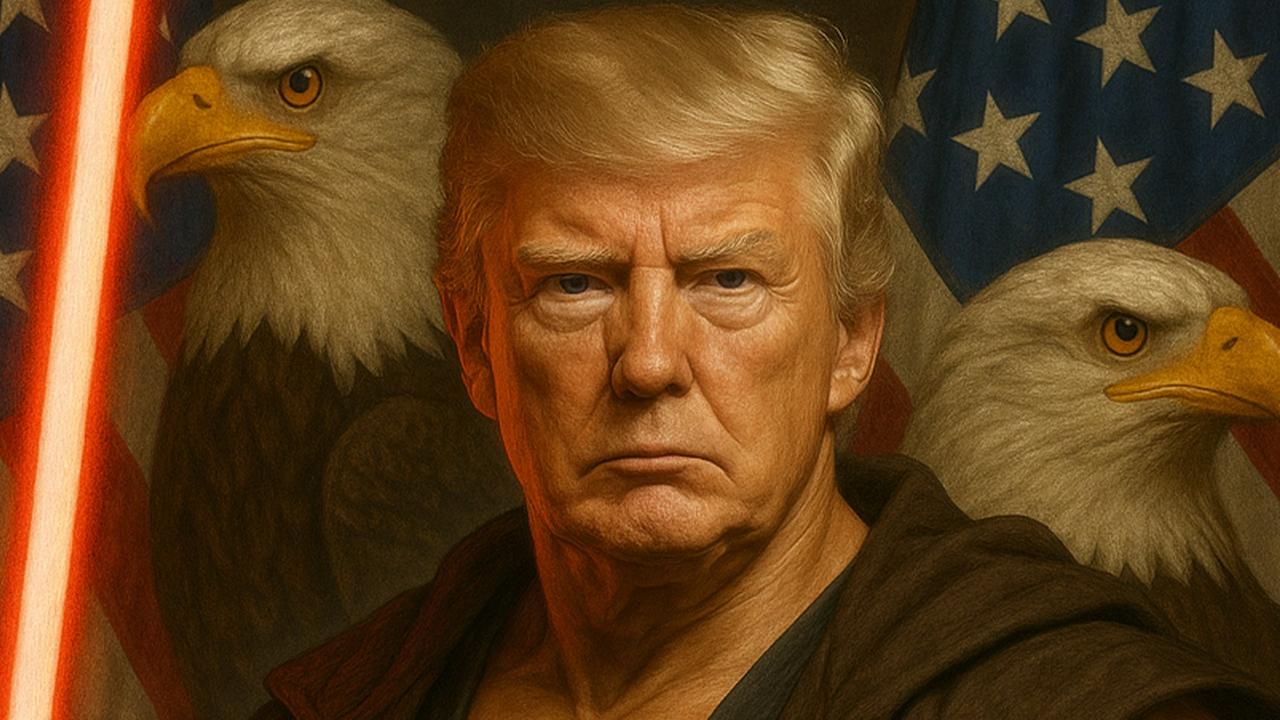Donald Trump impeachment process explained: What happens now in the Senate?
Donald Trump has become the first US president to be impeached twice and his future now depends on what happens in the Senate.
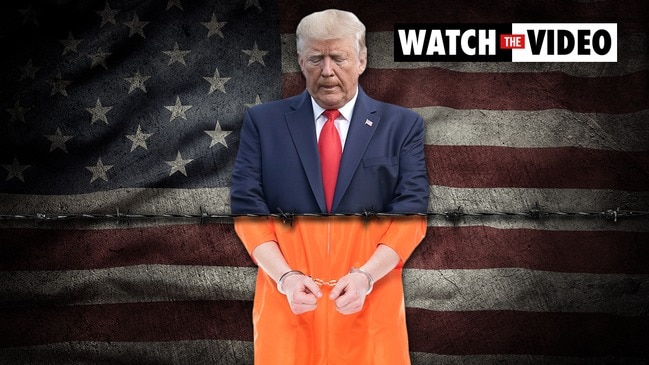
Donald Trump is officially the first United States president to be impeached twice — so what happens next?
The US House of Representatives voted on Wednesday (local time) to impeach Mr Trump for “high crimes and misdemeanours” and specifically on the charge of “incitement of insurrection” after he was accused of stoking a mob who forcefully entered Congress on January 6.
The article of impeachment states that Mr Trump “repeatedly issued false statements asserting that the presidential election results were fraudulent” and “wilfully made statements to the crowd that encouraged and foreseeably resulted in lawless action at the Capitol”.
It said Mr Trump “gravely endangered the security of the United States and its institutions of government, threatened the integrity of the democratic system, interfered with the peaceful transition of power, and imperilled a coequal branch of government”.
The motion for impeachment was supported by 232 representatives, with 197 against. Ten Republicans supported the Democrats, voting against their own party’s President.
This has essentially “charged” Mr Trump with a crime, with the vote setting the “articles of impeachment”.
It will be up to the Senate to decide whether to “convict” Mr Trump of a crime and this will require a two-thirds vote.
If convicted, Mr Trump would normally be removed from office but because of the tight timeframes the Senate won’t get a chance to make a decision before Mr Trump finishes his term.
RELATED: Trump mob’s unsettling new plan revealed
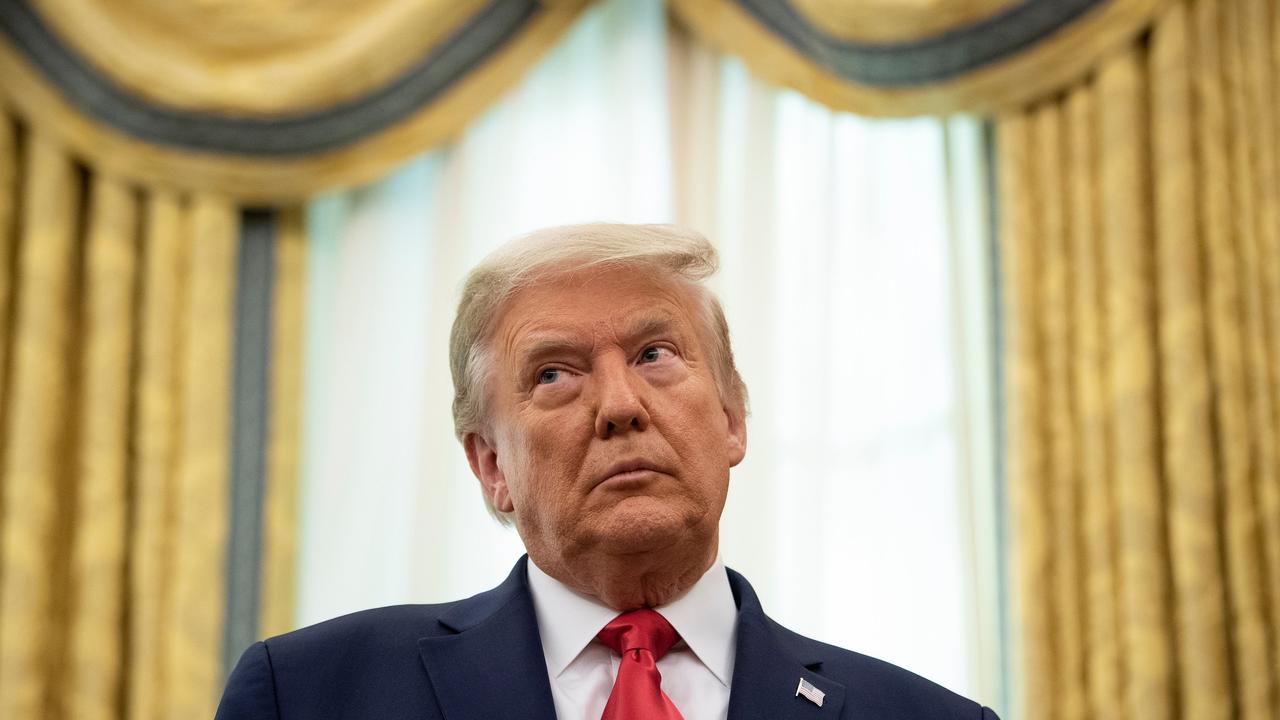
RELATED: Trump’s most loyal defender now ‘hates’ him
The Senate is not due to meet again until January 19, the day before Democrat Joe Biden’s inauguration on January 20.
Republican Senate leader Mitch McConnell’s office on Wednesday confirmed he will not reconvene the Senate before January 19 so Mr Trump will serve out his term.
“Given the rules, procedures and Senate precedents that govern presidential impeachment trials there is simpy no chance that a fair or serious trial could conclude before President-elect Biden is sworn in next week,” Mr McConnell said in a statement after the House voted to impeach the President.
“The Senate has held three presidential impeachment trials. They have lasted 83 days, 37 days and 21 days respectively.”
However, even after Mr Trump leaves office, a conviction in the Senate could lead to a decision to bar him from running again in 2024.
The Senate has previously disqualified some officials from holding public office in the future and there is no appeal.
Whether the Senate will decide to convict Mr Trump and block him from running again, is unclear.
When Mr Trump was first impeached by the House in 2019 over his dealings with Ukraine, the Senate voted to acquit him.
This is partly because the Republicans have control of the 100-member Senate. This will change after the inauguration when the numbers will be split 50-50 with the Democrats, and new vice president Kamala Harris will hold the deciding vote.
However, an impeachment trial requires two-thirds support (or 67 votes) so support from 17 Republicans will still be needed to convict Mr Trump.
So far no Republicans have said they will support convicting Mr Trump but hopes have been raised with reports in the New York Times that Mr McConnell, the most powerful Republican in the Senate, believes the President did commit impeachable crimes.
RELATED: Outrageous pictures show US anarchy
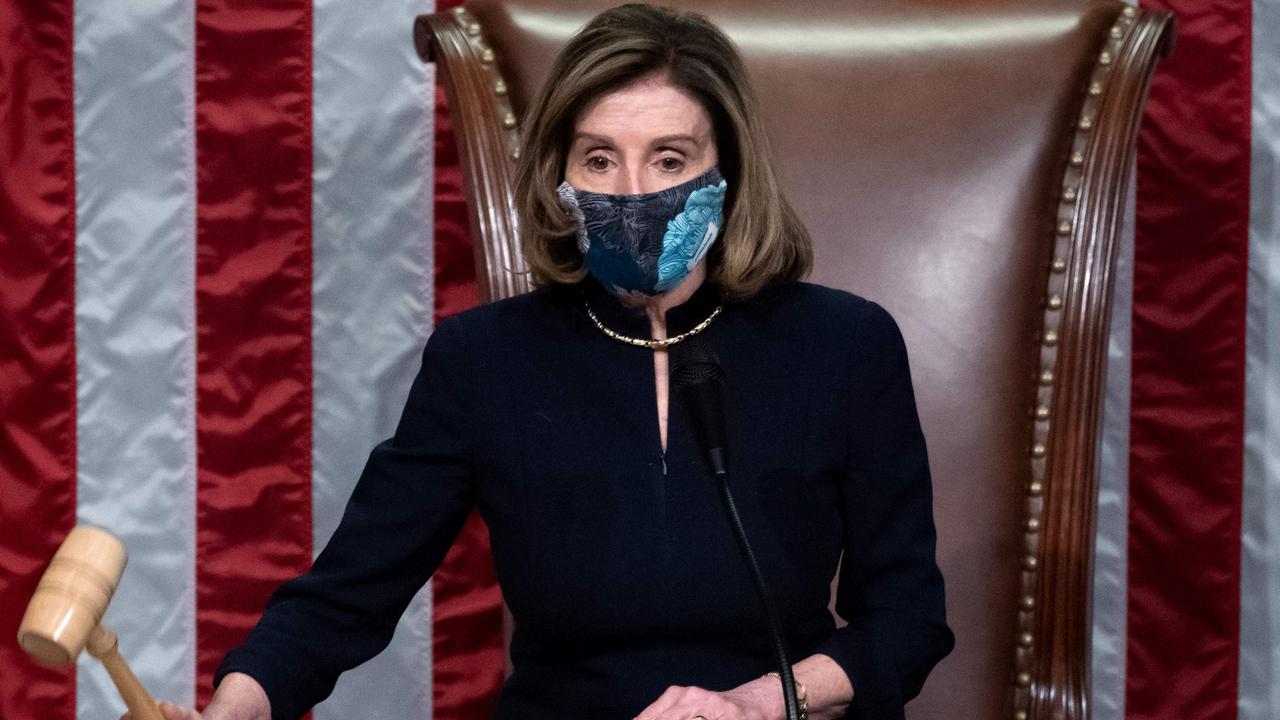
During the impeachment trial, the Senate will sit as a “High Court of Impeachment” and senators will consider evidence, hear witnesses and then vote to either acquit or convict Mr Trump.
The chief justice of the United States will oversee the trial, and committee from the House, called “managers” will act as prosecutors.
Since 1789, about half of Senate impeachment trials have resulted in conviction and removal from office.
During the vote to impeach Mr Trump, House Speaker Nancy Pelosi told the chamber that Mr Trump “must go.”
“He is a clear and present danger to the nation that we all love,” she said.
Earlier, Democratic politician Ilhan Omar branded Mr Trump a “tyrant,” saying that “for us to able to survive as a functioning democracy there has to be accountability”.
But Nancy Mace, a newly-elected Republican congresswoman said that while politicians “need to hold the president accountable”, the speed of the impeachment “poses great questions about the constitutionality”.
The action against Mr Trump was triggered by his speech to a crowd on the National Mall last week.
The President told those gathered that Mr Biden had stolen the presidential election and that they needed to march on Congress and show “strength”.
Amped up on weeks of conspiracy theories pushed by Mr Trump, the mob then stormed into the Capitol, fatally wounded one police officer, wrecking furniture and forcing terrified politicians to hide, interrupting a ceremony to put the legal stamp on Mr Biden’s victory.
One protester was shot dead, and three other people died of “medical emergencies”, bringing the toll to five.
– with AFP


